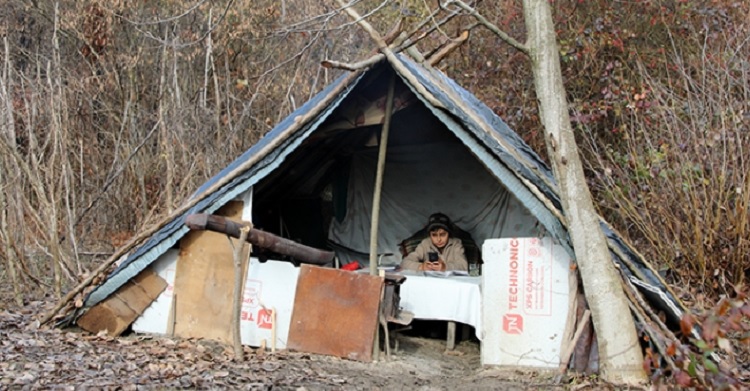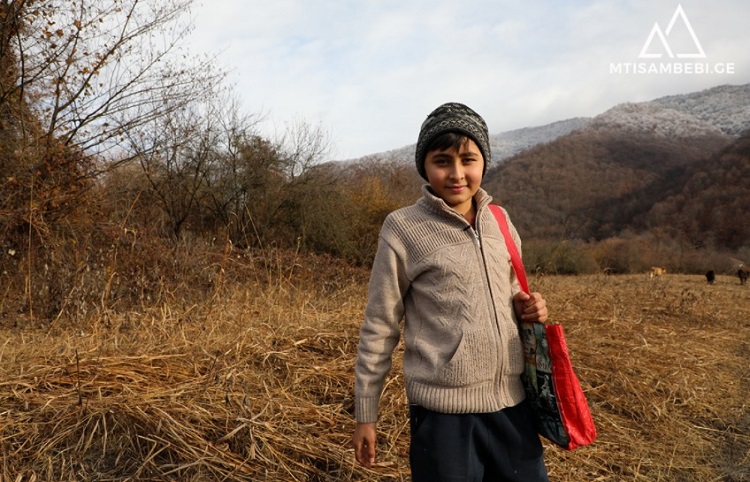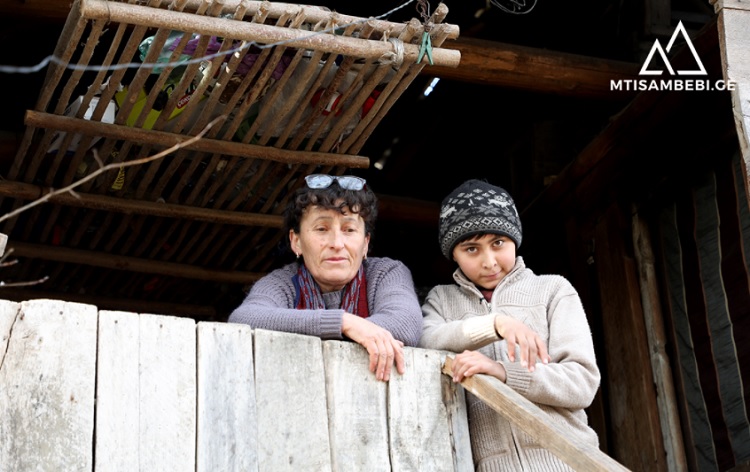The Georgian boy who attends online classes in a hut 10 km from his house

Mtisambebi new agency reports that 661,500 children aged 3-17 have had to stay home since the coronavirus pandemic has started in Georgia and schools have switched to remote classes. Of these, 50,400 children do not have access to the internet; some don’t even have computers. Photo: Mtisambebi.ge.
Eleven-year-old Aleksandre Tsotskolauri lives in the village of Khevischala in eastern Akhmeta municipality.
Since the coronavirus pandemic has hit Georgia and schools have switched to remote studies, Aleksandre has to join his online classes from a hut far from his home, as it is the only place in the village where he can get an internet signal.
 Aleksandre Tsotskolauri told Mtisambebi news agency that his father built the hut for him in order to attend online studies. Photo: Mtisambebi.ge.
Aleksandre Tsotskolauri told Mtisambebi news agency that his father built the hut for him in order to attend online studies. Photo: Mtisambebi.ge.
Studies start at 09:50 a.m. Now that we have to attend online lessons, they are shorter then before and I have to spend about two hours in the hut. Although I have a wood stove here, my feet are always cold. Initially the hut had a front side too, but I had to remove it because the internet signal was lost. Sometimes it is hard for me to join classes with my phone, but I have a broken computer and my mobile phone is the only device here for me”, said Tsotskolauri to Mtisambebi.
The hut is 10 kilometers from Aleksandre’s house. He has to cross several small rivers along the way from home to the hut.
Aleksandre’s mother tried to bring the boy to a nearby school in Akhmeta municipality, but the main problem for the family is that they don’t have a car and the Education Ministry has not solved the transportation problem yet.
 As he is the only child in the Khevischala village and the inhabitants are mainly elderly people, Aleksandre thinks the internet will never be available in his village. Photo: Mtisambebi.ge.
As he is the only child in the Khevischala village and the inhabitants are mainly elderly people, Aleksandre thinks the internet will never be available in his village. Photo: Mtisambebi.ge.
I prefer to live in this village and study near my house if I will be able to go to school by car. I don’t want to live far away from my parents and live in a city in order to attend online studies… I can get up even at 7:00 a.m. and go to school by foot, but walking is dangerous, as wolves and bears live in the forest”, said Aleksandre Tsotskolauri.
Mtisambebi new agency reports that 661,500 children aged 3-17 have had to stay home since the coronavirus pandemic has started in Georgia and schools have switched to remote classes.
Of these, 50,400 children do not have access to the internet; some don’t even have computers.
 Tweet
Tweet  Share
Share